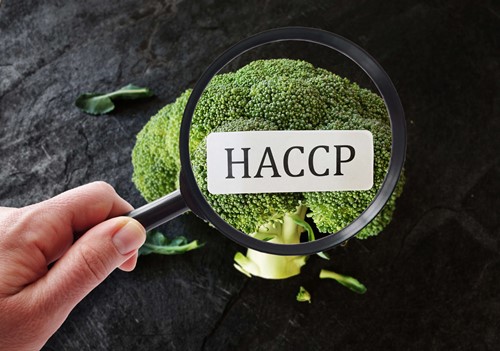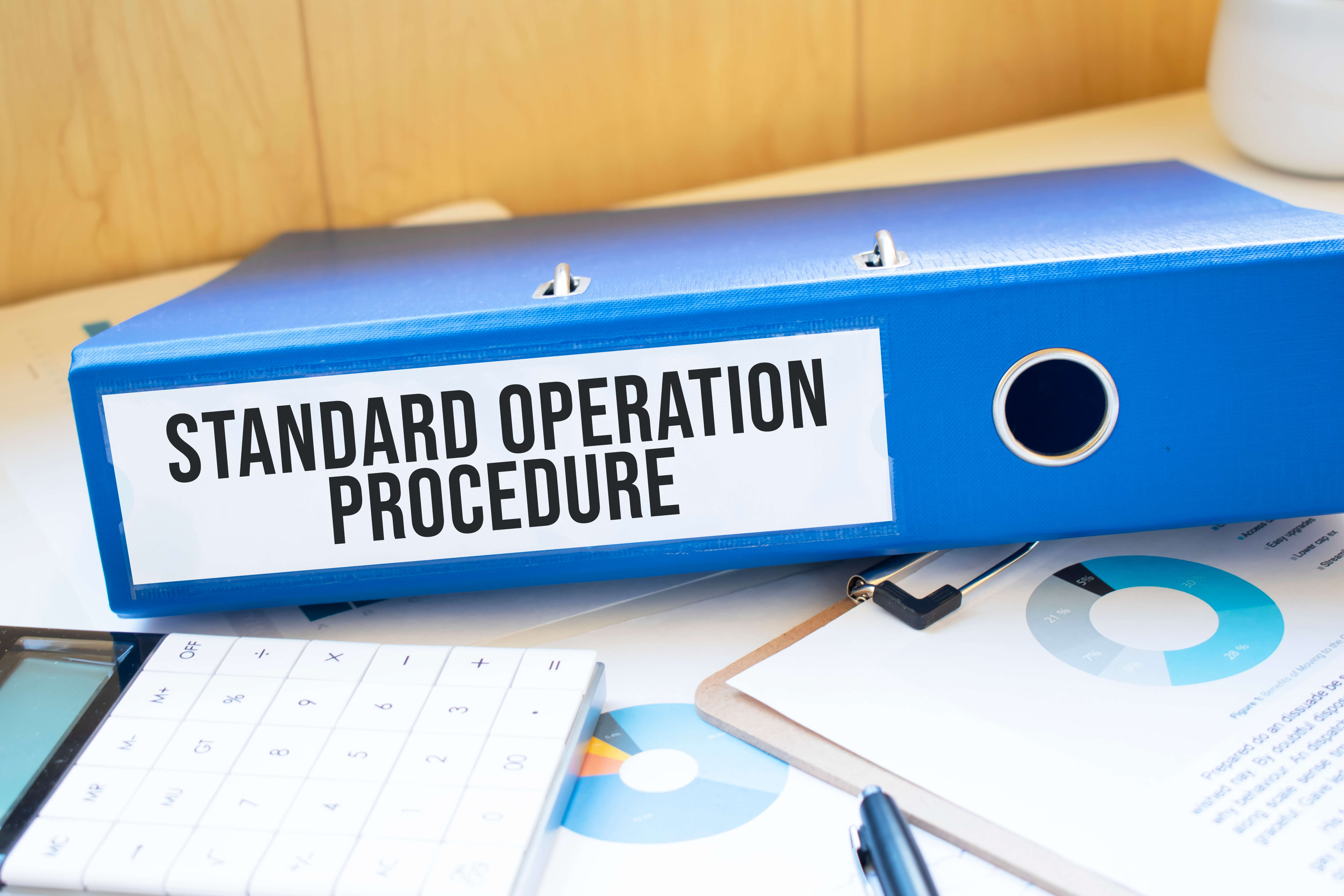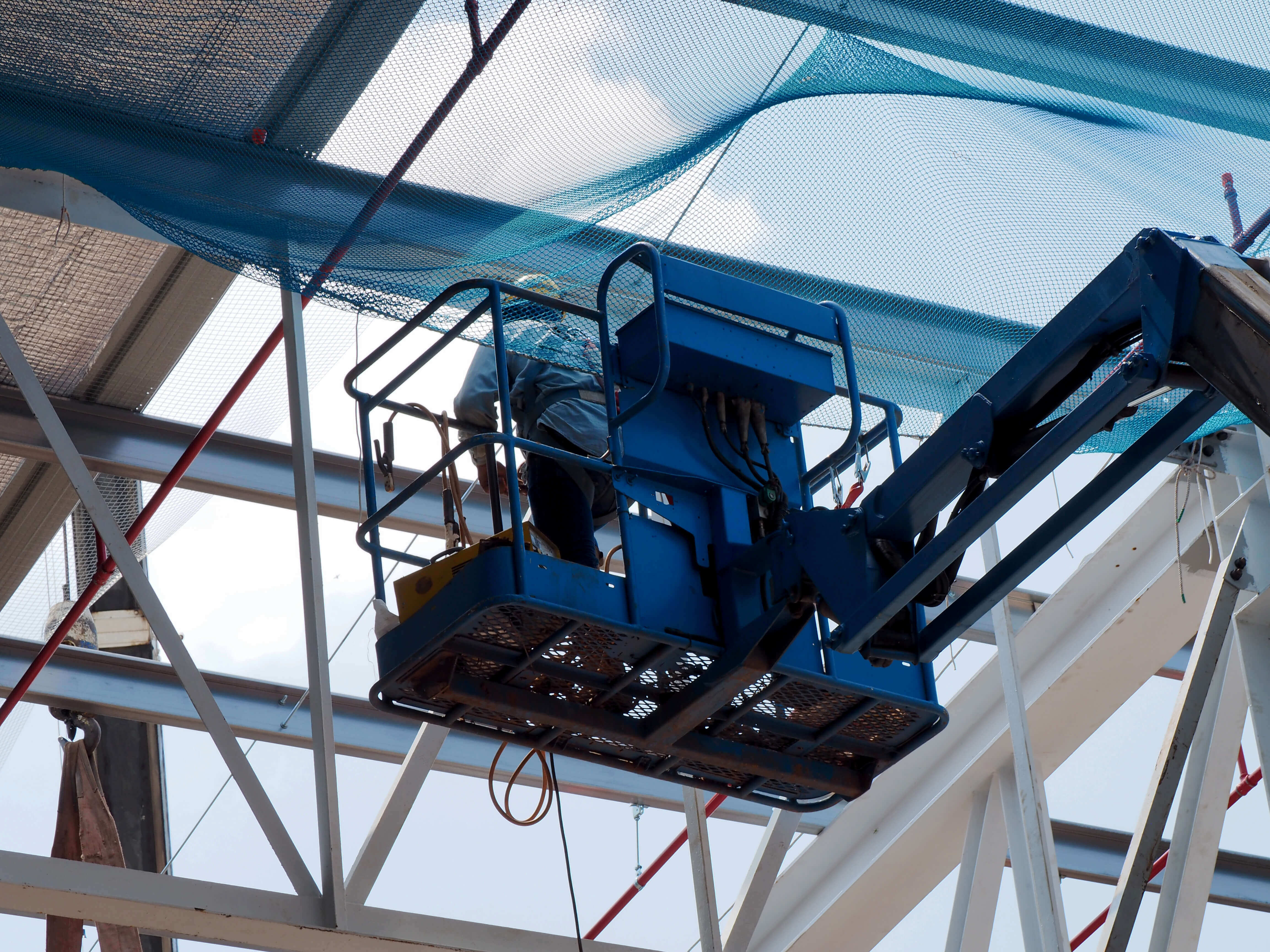If you work within the food and drink industry you may have stumbled across a hazard analysis and critical control point system before.This was introduced to mitigate food safety hazards from entering the food and drink we consume.
Without a robust HACCP system in place you run the risk of injuring consumers, breaking the law under the Food Safety Management Legislation under Article 5 of the Regulation (EC) 852/2004.
If you need immediate support in putting together a HACCP plan, get in touch with one of our experts here.

What does HACCP stand for?
HACCP stands for Hazard Analysis and Critical Control Points. This system looks at the hazards present in the environment where food and drink are made or produced.
HACCP looks into how these hazards can be mitigated, controlled and managed.
HACCP can be used throughout the whole food production process, from how the food is grown and produced to food processing and the process from farm to consumer plates.
Why is it used?
HACCP is used to stop hazards from entering the food production line, as many hazards can cause serious illnesses and injuries to the consumer and individuals handling the food.
HACCP identifies the areas where the production process could go wrong and sets in motion a plan for preventing unsafe food from entering circulation and customers.
Who uses Hazard analysis and critical control points?
Any business that handles the production of food, retailing food, and catering must have a food safety management system in place.
This ensures that any controlled substance that enters the food chain is assessed, and preventative actions are present to stop hazards from causing illness and injuries.
HACCP isn't limited to food consumed by humans, it is also used in the manufacture of animal food, makeup and cosmetics.
What is a HACCP hazard?
As defined by the Food Standard Agency (FSA) a hazard is something that has the potential to cause harm. With this in mind, a HACCP hazard will apply to all food safety hazards, including the four types of food contamination.
Biological
This type of hazard typically occurs when a microorganism contaminates our food, such as:
- Bacteria, such as Salmonella and Campylobacter.
- Viruses, such as Norovirus.
- Parasites, such as worms and protozoa.
- Fungi, such as Yeast and moulds.
Chemical
A chemical hazard can both occur naturally or intentionally (man-made). For example, sodium nitrates can be added for preservation processes and other chemicals can be added to improve the taste of the food.
There is also the chance for chemicals to be added to food and drink unintendedly such as toxins, allergenic chemicals, hazardous substances, and excess chemicals.
Physical hazards
Physical hazards are materials or objects that can be found in the food we consume. This kind of hazard can cause injuries to teeth, mouth, and throat and cause a choking hazard.
These can be split into two different types of hazards, naturally occurring and unnatural.
- Naturally occurring hazards could include fruit stones and pips, bones and shells.
- Unnatural hazards could include stones, pebbles, hair (human and animal), fingernails, plastic, plasters, glass and wood.
Allergenic
An allergenic hazard is caused by allergens, these can trigger severe and dangerous reactions in some individuals. There are fourteen recognized allergens that you should be aware of.
What are the preliminary tasks of a HACCP plan?
Your HACCP plan is a document that takes into account all of the various technical and scientific principles of HACCP to ensure that hazards are controlled.
There are twelve tasks involved in developing a HACCP plan, these tasks can be split into two steps.
- Preliminary tasks.
- Applying the HACCP principles.
The preliminary tasks that you need to consider are;
- Put together a HACCP team.
- Describe the product.
- Identify the product's intended use.
- Create a flow diagram.
- Confirm the flow diagram.
These steps are important to follow when you are developing a HACCP system and plan.
What are the seven HACCP principles?
Establishments that are handling food need to have robust food safety procedures or systems that are based on the HACCP principles.
The seven HACCP principles are as follows;
- Identify hazards by carrying out a hazard analysis.
- Determine critical control points (CCPs).
- Establish critical limits.
- Establish monitoring procedures.
- Establishing a corrective action plan.
- Establish verification procedures, validation, and review procedures
- Establish record-keeping procedures.
These principles must be included in your HACCP plan, and be actioned in order.
What is a HACCP critical control point?
A critical control point is the step where the control can be applied. This is a crucial part of preventing or eliminating the food safety hazard.
For example, a critical control point could be testing ingredients for chemical residue.
You can work out what your critical control point should be by utilizing a decision tree.

What is a HACCP decision tree?
Where businesses don't have to use a decision tree when putting together their critical control points, it can be an incredibly useful tool to have in your arsenal.
There are five key questions that make up a decision tree, each one should be answered for each product or group.
You should also answer these questions at each step where a risk is identified.
- Are adequate actions for hazard controls in place?
- Are actions required?
- Is the step necessary to eliminate the hazard?
- Can the hazard increase at this step?
- Does a further step eliminate the hazard?
What are the advantages of HACCP?
There are several advantages to the HACCP system. A robust HACCP will give your customers peace of mind in knowing that your businesses are doing everything that they can to keep on top of food safety.
Not only this, it will keep the costs linked to customers' complaints to a minimum, recalling and destroying products.
A HACCP will also ensure that your business is compliant with food safety laws, and will enable you to showcase evidence of this should you find yourself facing legal action.
Is HACCP mandatory?
HACCP made it into the UK Law after the EU Regulation (EC) 852/2004 on the hygiene of foodstuffs was put into place.
Since the UK left the EU, the laws on HACCP still apply under the UK laws on food safety management and food hygiene.
How often should HACCP be reviewed?
As with your other documentation procedures, your HACCP should be regularly reviewed to ensure that all the information and procedures are up to date.
Regular reviews are imperative to ensuring that food safety hazards are controlled correctly.
At a minimum, you should review your documentation and monitoring procedures on a yearly basis.
You should ensure that you're carrying out a review of the monitoring procedures, and the overall food safety system when you introduce a new ingredient to the process or change the equipment used.
How long should records be kept?
As part of the seven principles of the HACCP system, it's essential that records are kept.
If you find yourself in an unfortunate situation where you're facing legal action or a food safety incident, you will need to provide evidence of the process you have followed and that you have done your due diligence.
Where there is no legal requirement to keep records for a set period of time, it's left down to each individual business to determine how long they should keep their records.

Get expert help
If your business handles food and drink - at any stage in the production process, whether that be at the farm or in the restaurant - and aren’t sure where to start when putting together a HACCP plan, or need help performing a hazard analysis, get in touch with one of Croner's health & safety experts.
Call now on 0800 141 3905.
Related resources
Categories
- Business Advice
- Contracts & Documentation
- Culture & Performance
- Disciplinary & Grievances
- Dismissals & Conduct
- Employee Conduct
- Employment Law
- End of Contract
- Equality & Discrimination
- Health & Safety
- Hiring & Managing
- Leave & Absence
- Managing Health & Safety
- Moving
- Occupational Health
- Pay & Benefits
- Recruitment
- Risk & Welfare



